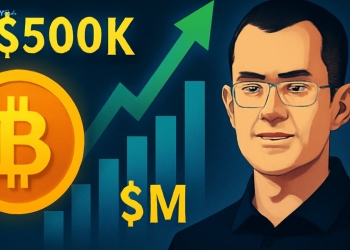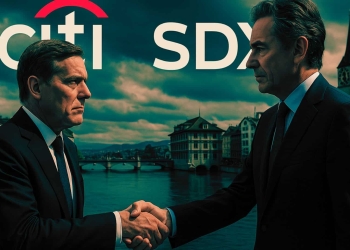In a milestone move, the Hong Kong Monetary Authority tied the knot with Brazil’s central bank to test cross-border tokenized projects. This uniting of forces heralds important progress in exploring more streamlined settlement solutions for trade and the carbon market. As worldwide interest in tokenization accelerates at a blistering pace, the collaboration intends to verify innovative payment infrastructures to enhance the efficiency and transparency of global deals.
Advancing Horizons through Ensemble and Drex Experimentation
The alliance involving HKMA and BCB revolves around two flagship undertakings: Hong Kong’s Ensemble venture and Brazil’s Drex scheme. These platforms are putting tokenized dealings to the test in international arenas, pushing boundaries on how assets can be digitally exchanged and reconciled. Project Ensemble Launched in 2023, Ensemble is an HKMA-driven sandbox meant to explore distributed ledger technology applications in fixed income, green finance, and trade.
This experimental setting allows HKMA to play with digital assets and find ways to streamline cross-border settlements, reduce costs, and minimize transaction delays. The Ensemble sandbox has already proven quite telling in testing four primary uses: liquidity administration, investment funds, trade, and sustainable finance. By boosting transparency and lowering expenses, Ensemble aligns with Hong Kong’s broader digital currency vision while setting the stage for worldwide collaboration.

Drex Program Brazil’s central bank launched its Drex program with ambitious goals, seeking to create a robust infrastructure for tokenized assets and settlements that could operate in real-time across the nation. The focus of the Drex platform is integrating tokenized assets into every corner of Brazil’s financial sector, attempting to cover uses ranging from e-commerce between small businesses to digitizing ownership of massive real estate portfolios. Already, over seventy corporations have become engaged in the pioneering program, underscoring Brazil’s determination to update its financial systems by embracing the power of tokenization.
Why Pursue Cross-Border Tokenization?
Tokenization has grown into a key priority for numerous governments exploring protected and effective approaches to represent real resources digitally across international lines. Tokenized holdings span everything from carbon credits to property, reimagining how entitlements and trades are administered outside domestic borders. For HKMA and BCB, cross-border tokenization offers a special chance to enhance transaction networks and distribution channels on a worldwide scale with efficiency and security.
The core of HKMA and BCB’s testing concentrates on payment-versus-payment and delivery-versus-payment models, which are indispensable in confirming protected concurrent exchanges in commerce financing and carbon credits. PvP and DvP have the potential to eliminate risks related to timing issues during settlements and introduce a new standard of protection and performance to transactions between nations.
Building on a Legacy of Cooperation
This latest undertaking builds upon the long-standing partnership between HKMA and BCB, originating with a financial cooperation accord in 2018. Both establishments share a commitment to pushing the regulatory and technological boundaries for digital currencies and tokenized assets to their full advantage.
HKMA’s involvement in Project Bridge, led by the Bank for International Settlements, underscores its commitment to advancing cross-border settlement solutions. The project, which included collaboration with central banks such as the People’s Bank of China, has demonstrated distributed ledger technology’s potential to streamline foreign exchange transactions. HKMA and BCB continue working in tandem towards innovative financial infrastructure, establishing their institutions as pioneers in digital currency networks.
While tokenization offers numerous advantages, harmonizing regulations and confirming technical compatibility are paramount to widespread adoption. The partnership of HKMA and BCB provides an organized setting to address these challenges, with both institutions eager to refine the technology and regulatory standards necessary to support tokenized assets globally.
Tokenization could vastly improve trade finance and carbon credits by reducing intermediaries and automating settlement processes, increasing market visibility and compliance. Insights from HKMA and BCB’s collaboration are anticipated to clarify how international regulatory frameworks can be applied, simplifying other economies’ adoption of tokenized asset models.

With tokenization emerging as a powerful tool in global finance, central banks and financial institutions worldwide are closely observing HKMA and BCB. Their progress may indicate a roadmap for other countries seeking to incorporate digital assets into financial infrastructure. For investors and businesses, this alliance signals the growing acceptance of tokenized assets within mainstream finance. As major economies explore tokenization’s advantages, transformative developments in cross-border asset management, instant payments, and sustainable finance seem inevitable.
The cooperative venture between the Hong Kong Monetary Authority and Banco Central do Brasil stands to benefit not solely Hong Kong and Brazil but shapes precedents for worldwide collaboration in the digital finance sphere. While exploring ways to unleash the capacity for tokenized assets, this partnership acts as a model for how cross-border teamwork can restructure finance for the better.
A Strategic Step Forward for Digital Finance
The alliance involving the HKMA and Banco Central do Brasil signifies a pivotal instant in the global journey toward a more interconnected and efficient monetary system. Through Project Ensemble and the Drex program, the two nations examine the advantages of tokenized possessions in practical, real situations. By establishing a foundation for cross-border tokenization, this partnership has the potential to encourage broader adoption and set standards for digital asset administration globally.
As the financial landscape continues to evolve, the collaboration between Hong Kong and Brazil serves as a key milestone in advancing digital finance. With promising outcomes currently visible, the partnership of the HKMA and BCB may soon inspire additional countries to investigate the transformative potential of tokenization.
Stay connected with TurkishNY Radio by following us on Twitter and LinkedIn, and join our Telegram channel for more news.































































































![BitTorrent [New]](https://s2.coinmarketcap.com/static/img/coins/64x64/16086.png)














